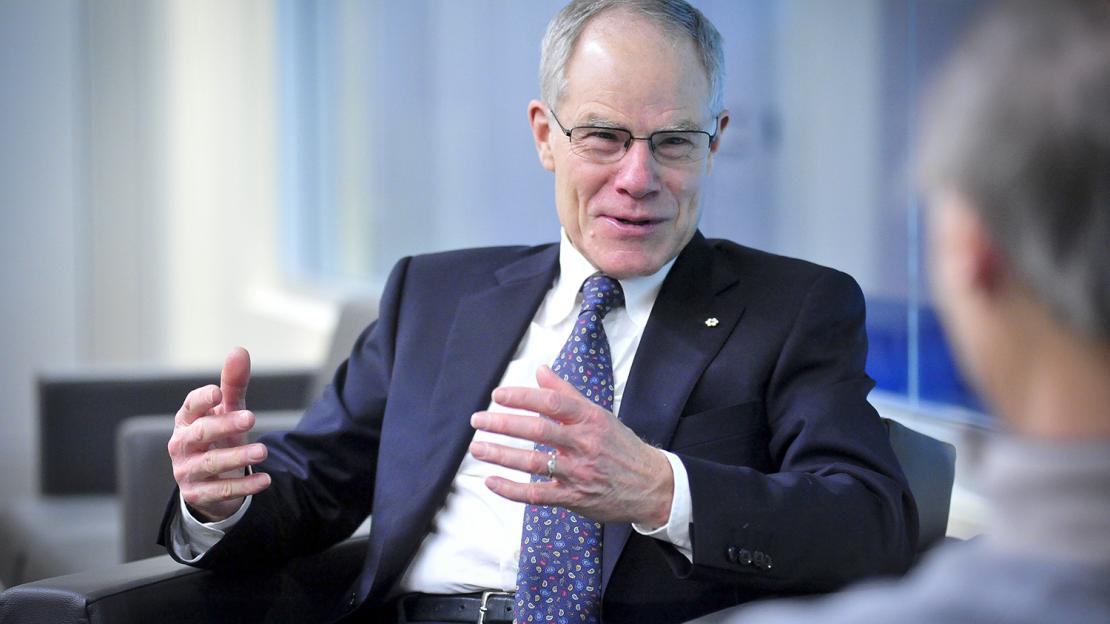In this year’s budget the Federal Government earmarked an initial $30 million and announced a plan to achieve gender equity in all levels of sport in Canada by 2035.
Then last week The Honourable Kirsty Duncan, Minister of Science and Minister of Sport and Persons with Disabilities’, announced a new working group devoted to the goal advancing gender equity in sport across Canada.
Among those chosen was Professor Bruce Kidd, U of T Vice-President and Principal of U of T Scarborough. Kidd, a former Olympian and celebrated Canadian track and field athlete brings a long history of sport policy work to the group, with a specific devotion to eradicating sexism and racism in sporting communities around the world. While progress has been made, Kidd calls the fight for gender equity in sport “a battle that still has not been won.”
Writer Raquel Russell spoke to Kidd about the new working group and why it’s an important step in addressing gender equity in Canadian sport.
Why is the new Working Group on Gender Equity in Sport so necessary for Canada’s sport system today?
Although there’s been tremendous progress regarding equity and inclusion, there’s still much to be done. More needs to be done on engaging the majority of girls and women in Canada who are not involved in sport at all. Work also needs to be done making leadership opportunities more available to women, and totally eliminating gender-based violence.
There also needs to be change in the way the media covers sport to provide more visibility, more appropriate and more inclusive coverage of the outstanding women who are part of Canadian sports teams.
What do you hope to bring to this role?
It’s a great honour that my input continues to be valued – I’ve been involved in this struggle for a very long time. I’m also currently involved in two efforts that will hopefully inform this process. First, at the instigation of Premier Wynne, the Ontario government created an advisory panel to look at Ontario sport policy with a particular emphasis on including girls and women. The Premier got me to Co-Chair that, and as a result of those efforts, we created the new Ontario’s Action Plan on Advancing Opportunities for Women and Girls in Sport.
Secondly, I’m involved in the Federal Provincial Territorial Work Group on Women and Sport, an overarching body created by federal, provincial and territorial governments to examine the challenges facing girls and women, and they appointed me the Co-Chair. So along with one or two others in the working group, hopefully I can connect the work that’s been done at a fairly intensive level in the last couple of years to this new initiative.
What do you hope to see accomplished by this working group?
I’m hoping that we can advise Minister Duncan on how to make sure the money is used really well and go to the priorities that the activists in the sports community have already identified. My involvement in this group is an extension of the work that colleagues and I at UTSC and other parts of U of T have long done on issues of equity. Sport has always been my great love, and it’s great to have an opportunity to make it better.
Your time as Vice-President, University of Toronto and Principal, U of T Scarborough, is soon coming to an end. Is this project a hint at the type of work you’ll be doing during retirement?
I’ve been involved in academic leadership, and I’ve been involved in the arts and other activities, but I think if there’s one central thread, it’s being involved in various efforts to change and improve Canadian sport.
For the immediate time, I will be involved in the bodies I mentioned earlier as well as being the Chair of the Selection Committee for Canada’s Sports Hall of Fame. I’m also still deeply involved in the fight against the sex test in international sport. We won the first round in the Dutee Chand case, but now the International Association of Athletics Federations (IAAF) has initiated a new discriminatory policy targeted against the brilliant South African runner Caster Semanya. In the last few days, between meetings, I spend most of my day working on that because that is a battle that still has not been won.
